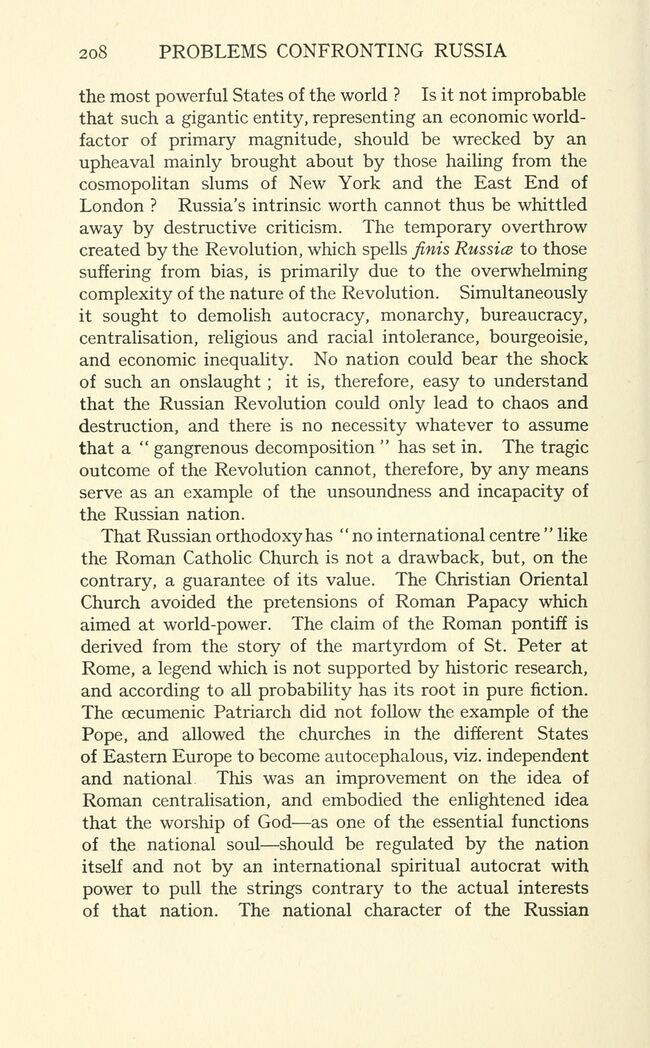
Full resolution (JPEG) - On this page / på denna sida - XV. Pro patria : a defence against hypercriticism

<< prev. page << föreg. sida << >> nästa sida >> next page >>
Below is the raw OCR text
from the above scanned image.
Do you see an error? Proofread the page now!
Här nedan syns maskintolkade texten från faksimilbilden ovan.
Ser du något fel? Korrekturläs sidan nu!
This page has never been proofread. / Denna sida har aldrig korrekturlästs.
102 PROBLEMS CONFRONTING RUSSIA
the most powerful States of the world ? Is it not improbable
that such a gigantic entity, representing an economic
world-factor of primary magnitude, should be wrecked by an
upheaval mainly brought about by those hailing from the
cosmopolitan slums of New York and the East End of
London ? Russia’s intrinsic worth cannot thus be whittled
away by destructive criticism. The temporary overthrow
created by the Revolution, which spells finis Russia to those
suffering from bias, is primarily due to the overwhelming
complexity of the nature of the Revolution. Simultaneously
it sought to demolish autocracy, monarchy, bureaucracy,
centralisation, religious and racial intolerance, bourgeoisie,
and economic inequality. No nation could bear the shock
of such an onslaught ; it is, therefore, easy to understand
that the Russian Revolution could only lead to chaos and
destruction, and there is no necessity whatever to assume
that a " gangrenous decomposition " has set in. The tragic
outcome of the Revolution cannot, therefore, by any means
serve as an example of the unsoundness and incapacity of
the Russian nation.
That Russian orthodoxy has " no international centre " like
the Roman Catholic Church is not a drawback, but, on the
contrary, a guarantee of its value. The Christian Oriental
Church avoided the pretensions of Roman Papacy which
aimed at world-power. The claim of the Roman pontiff is
derived from the story of the martyrdom of St. Peter at
Rome, a legend which is not supported by historic research,
and according to all probability has its root in pure fiction.
The cecumenic Patriarch did not follow the example of the
Pope, and allowed the churches in the different States
of Eastern Europe to become autocephalous, viz. independent
and national This was an improvement on the idea of
Roman centralisation, and embodied the enlightened idea
that the worship of God—as one of the essential functions
of the national soul—should be regulated by the nation
itself and not by an international spiritual autocrat with
power to pull the strings contrary to the actual interests
of that nation. The national character of the Russian
<< prev. page << föreg. sida << >> nästa sida >> next page >>